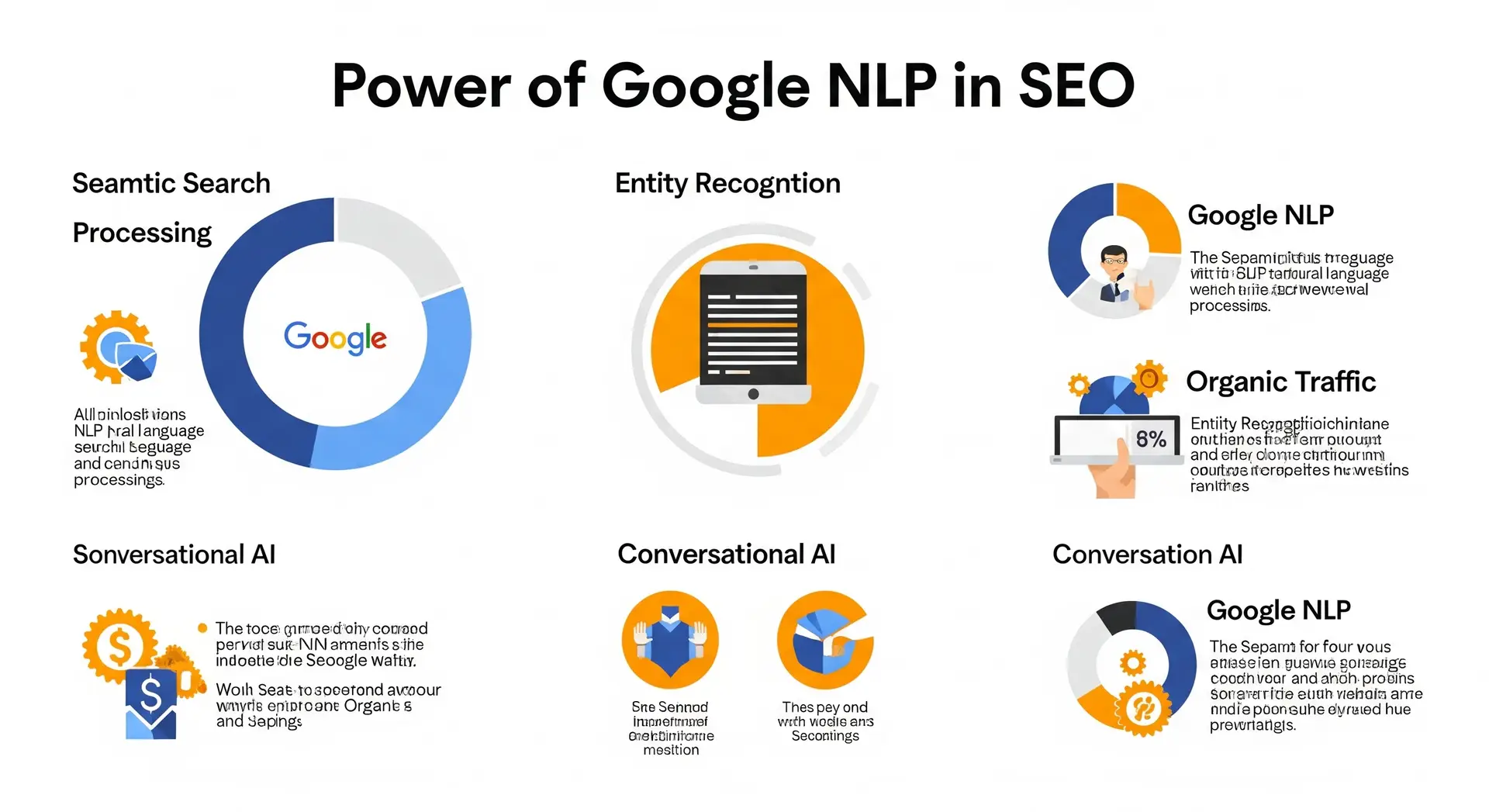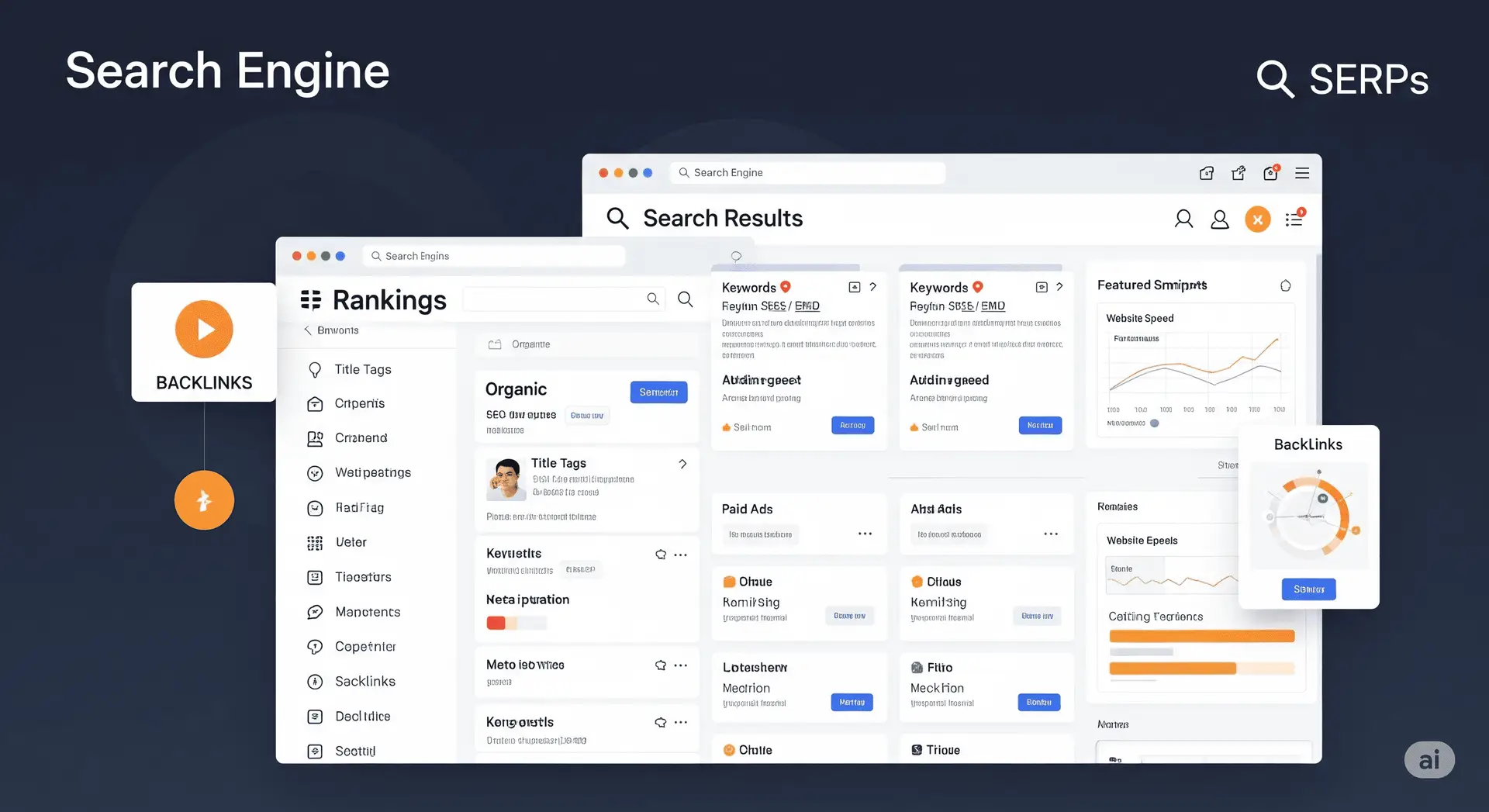
In the ever-evolving world of search engine optimization (SEO), staying ahead of the curve is essential. One of the most transformative advancements in recent years is Google’s Natural Language Processing (NLP). As Google gets better at understanding human language, SEO strategies must adapt. This blog explores what Google NLP is, how it impacts SEO, and actionable ways you can leverage it to boost your rankings in 2025 and beyond.
What is Google NLP?
Natural Language Processing (NLP) is a field of artificial intelligence that helps machines understand, interpret, and generate human language. Google has integrated NLP into its algorithms (notably in BERT, MUM, and RankBrain) to improve how it interprets search queries and web content.
Google’s NLP API analyzes text using machine learning to extract important information, including:
-
Entities (people, places, brands, etc.)
-
Sentiment (positive, negative, neutral)
-
Syntax (grammar structure)
-
Content categories
-
Salience scores (how relevant an entity is to the overall text)
This allows Google to understand context, not just keywords.
Why Google NLP Matters for SEO
Gone are the days when keyword stuffing and backlink spamming could trick the algorithm. Today, SEO success depends on semantic search and content relevance. Google NLP enables:
-
Better Query Understanding
Google interprets the intent behind a query. For example, it can distinguish between “how to make coffee” vs. “coffee machine repair.” -
Contextual Relevance
NLP helps Google understand what your content is truly about, rewarding well-structured, natural, and informative writing. -
Entity Recognition
Google now associates your content with real-world entities (e.g., “Tesla” the company vs. “Tesla” the scientist), helping improve topical authority. -
Improved SERP Accuracy
Rich snippets, People Also Ask, and featured snippets are now more influenced by NLP analysis of content quality.
How to Optimize Content for Google NLP
To align your SEO strategy with Google’s NLP capabilities, implement the following best practices:
1. Focus on Entities, Not Just Keywords
Include relevant named entities naturally in your content—such as people, places, products, organizations, and topics related to your niche.
👉 Example: Instead of repeating “SEO tools” 20 times, mention entities like “Google Search Console“, “SEMrush“, and “Ahrefs“.
2. Use Semantic Keywords
Google uses word relationships to understand content. Use LSI (Latent Semantic Indexing) terms—words and phrases closely related to your main topic.
👉 If your main keyword is “digital marketing”, related terms could be: “conversion funnel”, “PPC”, “email campaigns”, “retargeting”.
3. Improve Content Structure
-
Use short, clear sentences.
-
Break up content with headings and bullet points.
-
Add FAQs using natural language.
4. Optimize for Featured Snippets
Write concise answers to likely questions in your content. Use question-based subheadings (like H2s) and provide clear answers right below.
5. Write for User Intent
Understand the 3 main types of search intent:
-
Informational – Users want to learn (e.g., “how to bake a cake”).
-
Navigational – Looking for a specific site (e.g., “Twitter login”).
-
Transactional – Ready to act (e.g., “buy running shoes”).
Craft your content to directly satisfy the expected user intent behind a query.
6. Use Google’s NLP API to Analyze Your Content
Try the Google Cloud Natural Language API to see how Google might interpret your content:
-
Identify key entities.
-
Measure sentiment.
-
Check relevance scores.
Adjust your content accordingly to improve clarity and contextual relevance.
Real-World Benefits of Using Google NLP in SEO
✅ Higher Rankings with Less Keyword Stuffing
You no longer need to overuse keywords. Instead, writing naturally and semantically will rank better.
✅ Enhanced User Experience
Google favors content that’s easier to read and answers users’ questions quickly.
✅ Better Featured Snippet Opportunities
Well-structured content that matches NLP expectations is more likely to appear in featured snippets.
✅ Competitive Edge
Very few businesses actively use NLP analysis for content refinement. Implementing it can give you a serious edge over competitors.
The Future of SEO is NLP-Driven
With algorithms like BERT, MUM, and the rise of AI assistants, NLP is no longer optional—it’s the backbone of modern SEO. As search engines grow more intelligent, human-like content becomes the new standard. Investing in semantic search and NLP optimization now will set you up for long-term success.
Quick Tips for Google NLP SEO Success
-
Use real-world entities and topic clusters.
-
Create content around questions people ask.
-
Avoid robotic or overly optimized writing.
-
Test content using Google NLP API and revise accordingly.
-
Always match content with search intent.
FAQs About Google NLP and SEO
1. What’s the difference between traditional SEO and NLP SEO?
Traditional SEO focuses on keywords and backlinks. NLP SEO emphasizes language, meaning, and context for better content relevance and user satisfaction.
2. Can small businesses benefit from Google NLP SEO?
Absolutely. By focusing on clear, useful, and structured content, even small sites can rank well using NLP-driven SEO practices.
3. Is keyword research still important in NLP SEO?
Yes, but it’s evolved. Focus on semantic keywords, related terms, and user intent rather than just volume and density.
4. How often does Google update its NLP models?
Google continuously improves its models. Major updates like BERT (2019), MUM (2021), and other unnamed updates are gradually rolled out, affecting search results.
Final Thoughts
As Google continues to develop smarter algorithms that understand human language, content creators and marketers must shift from keyword-centric strategies to context-first approaches. Google NLP is not a passing trend—it’s the future of SEO.
Write for humans. Structure for machines. Optimize with intent. That’s the winning formula for Google NLP SEO.





